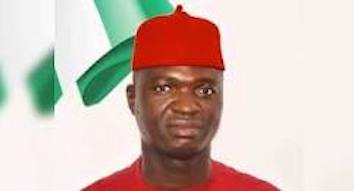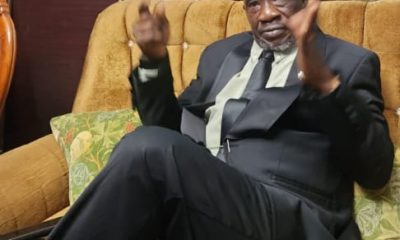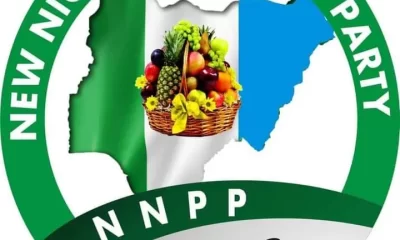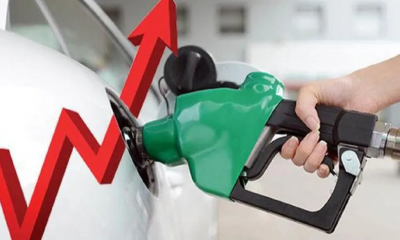OPINION
A Clarion Call for Deeper Reasoning towards the Igbo Homeland
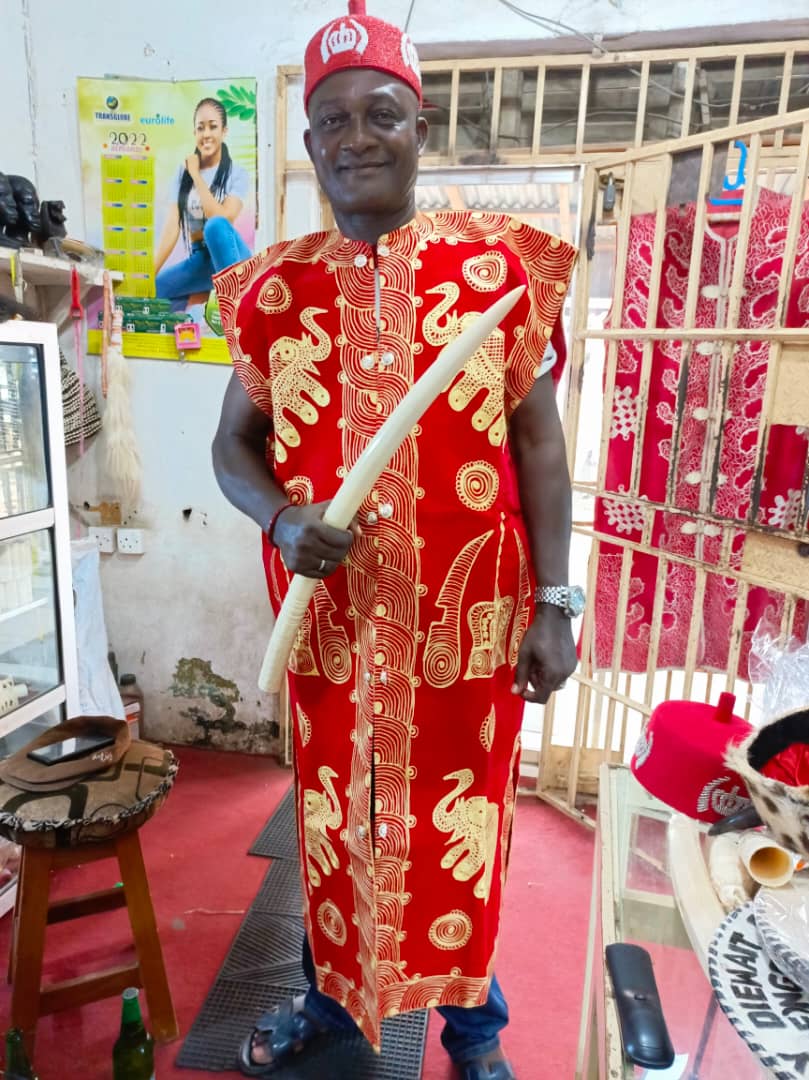
By Ijewa, Zeb Obioma
Through time and history, most social rebirths or reawakening could be traced to the realisation or regaining of a certain lost consciousness of a people’s worth, value or heritage.
Another could as well be linked to persecution and undeserved treatment at the hands of neighbors or masters as the case may be.
Israel (Jewish nation) had been one of the oldest nations on earth.
The history and story of Israel is a common knowledge made available in the Bible and other religious books that dwelt on God’s creation story. However, the enslavement of the 630s BC occasioned by the Persian and the Babylonian conquests, dispersed and scattered the Jews (people of Israel) all over the surfaces of the earth.Remember that the Egyptian slavery experience was a primary lesson that necessitated Moses’ deliverance plan of “let my people go”. But that was a child’s play compared to the Holocaust that took place in Hitler’s Germany which, apart from dispersing the Jews like oilbean tree to the utmost ends of the globe, resulted in the concerted efforts of the United Nations to return the Jews to their ancestral homeland of Israel (Canaan) in the Middle East, late ’40s.
In other words, when a people – mostly a travelling and adventurous tribe like the Igbo, begin to undergo certain socio-econmic persecutions and ill-treatments at the hands of their hosts, it begins to demand for such a people to make a rethink about their lives of adventures and sojourn, with a tendency to retrace their steps and invest their living homewards.
The Igbo is a highly traveled, urbane, business minded, fortune hunting, detribalised and success driven adventurers. They are prosperous in most things they do, just like the Jews. The Igbo story in Nigeria is repetitious.
First, the politico-socio events of the 1960s culminating in the pogrom, and consequently, the near three years genocidal Nigerian- Biafran war, were big lessons for the Igbo of the past, the present and the future.
Worse still, the ‘un-attachment’ attitude of the Nigerian federal government to the ‘vanquished’ state of the Igbo’s and their homeland, has not helped matters. Seriously and very practically speaking, there is obvious lack of federal presence in Igbo land.
The neglect nature and marginalization of the Igbo tribe by the federal government, in spite of its glaring hypocrisy, would suggest a deliberate orchestration to make a people loathe their homeland and disperse to other places in search of greener pastures.
Apart from making uncommon exploits in business and commerce, the Igbo invests in Education. For a people who cherish civilization, education became a prerequisite for other engagements. Even the business man – the ordinary trader, would squeeze out time to engage extra moral or part time educational pursuit so as not to lag behind where and when it mattered. The Igbo is popularly known as a most industrious people on the surface of the earth. Sometimes, somewhere, they are rated as the most intelligent group of people from the continent of Africa.
Now, in most parts of Nigeria, the Igbo, the people who carry and bring development to anywhere they go, are facing one form of persecution or another. If they are not made sacrificial lambs during religious crisis or extremism, they are bullied or discriminated against in places of business or work.
In the past, such atrocious treatments were only common in the core Islamic states and regions of the North. However, the unconscionable political inconsistencies, overreach, and atrocities of the recent times have indicated that, even in the Southern part of Nigeria, mostly the Southwest of the Yoruba tribe, the Igbo could only be said to have been tolerated all the while.
True, the Yoruba has never hidden their fear, detest, envy and acrimonious jealousy of the Igbo – mostly as they could not fathom how, after all the devastation and economic wickedness meted on the Igbo by emasculating federal government policies, the Igbo still picked up from the ashes to emerge strong commercial and economic power in the country.
Most large business in Lagos are owned by the Igbo. About 80% of investments and buildings in Lagos are owned by the Igbo. Most painful is the fact that the Igbo population in Lagos is seriously undermining the political prospects of the Yoruba.
This, they are not comfortable with. Thus, the recent demolitions of residential and commercial buildings owned by Igbos and unprovoked attacks directed at Igbo businesses, owe to the frenzy venomous orgy to weaken the Igbo economic prospects.
Fear of Igbo domination! Somehow, the Igbo had never at any point in time held their people back from enterprising in their chosen fields. So, the bottom line is that the realization that the Igbo is indomitable, irrepressible, indefatigable, irresistible, resilient and bold is the reason for the current campaign of calumny and annihilation by the other tribes.
The above and more are the reasons for the mission, vision, and philosophical content of “Igbo Ruo Ulo, E Dozie AlaIgbo”.
It will be an effort in futility if mention is not made of the human factor protagonist of this all timely and important venture and agenda. In life, leadership has always been prominent in human affairs.
Somebody must be the initiator of any movement or ideology. It might not indicate that such an individual is the only one affected by the ugly situation, but it would imply that what others see as not their concern gets deeper reflection and understanding by that initiator.
In the light of this, Chief Agumba Obioma Ezinwa deserves all the accolades and appreciation for sacrificing his time, energy and resources to establish this all timely and necessary call of reawakening for all Igbo sons and daughters to return home and develop Igboland – where their investments will be safe, enduring, and protected: and they would be appreciated, too, as against the wicked ways they are being treated outside Igboland.
Therefore, “Igbo Ruo Ulo, E Dozie AlaIgbo” is a movement of consciousness and awareness creation for all Igbo sons and daughters to rise up to the challenges and demands of the present situation, with a view to appreciating the advantages and benefits of bringing their investments down our homeland, in preparation for a more secure future investments and protection of our hard earned wealth. In other words, “north or west, home is the best”. This is a modern Renaissance!
It is good to mention that in doing this, in making these many sacrifices and running the risks of tireless traveling, Chief Agumba is not unaware of the possible hitches on the way. Yes, the Igbo are naturally stubborn and difficult to govern.
Leadership by one man is historically unpopular with the Igbo. Hence, the Igbo do not recognize leadership by one man. So, this continues to play out when at any instance, a lone man brings up an idea to lead and educate the people, it has always proved a herculean task.
But the good turn is that, if such leadership could endure the seeming early distractions and forge ahead, with time, he will be faced with those who had been complacent or detached trying to wrestle the leadership position from him, because they have seen the prospects of success in the venture.
That is the Igbo Republicanism – bringing the matter at the public square and waiting until all have given consent before identifying with the issue. No. Waiting until all have come to agreement could mean waiting forever.
Good enough, the movement has gained speedy acceptance and the membership keeps growing on daily basis. “That all might come to the knowledge of the truth”. “Igbo Ruo nu ulo, ugbu a bu oge!”
Ijewa, Zeb Obioma writes as Director, Media and Publicity, Igbo Ruo Ulo Edozie Ala Igbo Development Union Worldwide.
OPINION
Buhari: Lessons in Leadership and Patriotism

By Ismail Abdulaziz
On July 13, retired Maj.-Gen. Muhammadu Buhari, former President of Nigeria, passed away after the mid-day prayers at a London Clinic at the ripe age of 82.Many testimonies about his life and times indicate a man of civility, discipline and patriotism not adding his avowed principle of living a Spartan life and commitment to eradication of corruption.
President Bola Tinubu, paid a glowing tribute. ‘’Buhari was to the very core, a patriot, a soldier, a statesman; his legacy of service and sacrifice endures.“He served Nigeria with unwavering dedication, first as a military leader from January 1984 to August 1985, and later as a democratically elected President from 2015 to 2023; duty, honour, and a deep commitment to the unity and progress of our nation defined his life.“He stood firm through the most turbulent times, leading with quiet strength, profound integrity, and an unshakable belief in Nigeria’s potential.“He championed discipline in public service, confronted corruption head-on, and placed the country above personal interest at every turn,’’ the president said.Similarly, the revered Islamic scholar, Mufti Ismail Menk, said Buhari was an upright man, who never missed his prayers and a very disciplined believer who served his people to the best of his ability.“His name was synonymous with integrity.“He was definitely one of those who made me develop a much better perception of Nigerians as a people,’’ he said.The U.S. Mission in Nigeria also condoled with Nigeria.“Buhari was a leader whose life was defined by service, discipline, and a commitment to restore integrity to public office.“His legacy includes his efforts to strengthen Nigeria’s democratic institutions,’’ it said.The Chinese embassy in Nigeria also expressed its condolences.‘’We mourn a resolute leader whose unwavering dedication to Nigeria’s unity and progress leaves an enduring legacy.“His pivotal contributions to advancing China-Nigeria relations will forever remain etched in our shared history,’’ it said.Former President Olusegun Obasanjo, who was also a former military Head of State like Buhari, said the late president was a comrade, a cool patriot, who as a soldier, played his role.“As an administrator, he played his role as an administrator; as a statesman, he played his role as a statesman.“At a time like this, we need the totality of the experience and what I may call statesmanship of all those who have had opportunities to run the affairs of this country to get us out of the situation we are in; he will be sorely missed; may his soul rest in perfect peace,” Obasanjo said.Tributes have also come in from the Ethiopian Prime Minister Abiy Ahmed Ali, Sierra Leone President Julius Maada Bio as well as World Trade Organisation Director-General Ngozi Okonjo-Iweala.During his campaign in 2015, something spectacular happened.The masses of Nigeria decided to contribute their widows’ mites for his success.What else can a human want than the general believe in his capacity and ability to lead them to the Promised Land?This singular act was a burden placed on him by the people to rectify the past.Analysts say the history of Nigeria will be replete with the roles Buhari played during his three terms leading the country.First, as a military head of state and subsequently, as a democratically elected president between 2015 and 2023.For history to be kind to him, the testimonies of those around him during his time will shape the final options.As an elder statesman, Ibrahim Badamasi Babangida once said: “History will be kind to you for taking a decision, but will never be kind to you for not taking a decision.”Buhari accepted most of the mistakes he took while serving the people as exemplified in one of his statements in the course of his handing over the reign of leadership to President Tinubu.“Whoever thought that there has been some form of injustice on him we are all humans, there is no doubt I hurt some people, and I wish they would pardon me and those who think that I have hurt them, please pardon me.”The man that peacefully handed over power to Buhari, former President Goodluck Jonathan, has some comforting words.‘’He will be remembered as a courageous leader, a disciplined officer, and a committed public servant who made considerable contributions towards the peace and progress of our dear nation.“The late President was deeply admired across the strata of society for his decency, integrity and exemplary life of service.“As a leader, he was selfless in his commitment to his duty and served the country with character and a deep sense of patriotism.‘’In his passing, Nigeria has lost one of its foremost leaders, and I have lost a respected colleague and elder.“His legacy will continue to endure in the hearts of all who value sacrifice, integrity, perseverance and devotion to national ethos,’’ Jonathan said.Buhari was born on Dec. 17, 1942 in Daura, Katsina State to Adamu and Zulaiha Buhari.He was raised by his mother, following the death of his father when he was about four years old; he had his primary school education in Daura and Maidua from 1948 to 1952, before proceeding to Katsina Middle School in 1953.He joined the Nigerian Army in 1961 when he was admitted to the Nigerian Military Training College, Kaduna.Buhari underwent Officer Cadets training at Mons Officer Cadet School in Aldershot, England from 1962 to 1963, and was commissioned as Second Lieutenant in January, 1963.He attended the Nigerian Military College, Kaduna for the Platoon Commanders’ Course from 1963-1964Buoyed by a deep sense of patriotism and commitment to national service, Buhari entered politics in 2003, following Nigeria’s return to a democratic dispensation in 1999.Buhari joined the All Nigeria People’s Party (ANPP) and contested the presidential election on its platform that year.He lost to the presidential candidate of the People’s Democratic Party (PDP) Olusegun Obasanjo.Undeterred by defeat, Buhari continued his political struggle, and on Dec. 18, 2006, he emerged as the consensus presidential candidate of the ANPP for the 2007 elections.His main challenger in the April 2007 presidential polls was the ruling PDP candidate, Umaru Yar’Adua.In the election, Buhari officially scored 18 percent of the total votes cast, against 70 percent for Yar’Adua.In March 2010, Buhari left the ANPP and formed, with some of his supporters, the Congress for Progressive Change (CPC).Buhari was nominated as the CPC presidential candidate on April 16, 2011 for that year’s general election.He ran against the then incumbent, President Jonathan of the ruling PDP, Malam Nuhu Ribadu of the Action Congress of Nigeria (ACN), Ibrahim Shekarau of the ANPP, and other candidates of smaller parties.Using the platform of the CPC, a newly formed party, Buhari was able to garner 12, 214, 853 votes, coming second to Goodluck Jonathan of the Peoples Democratic Party(PDP), who polled 22, 495, 197 votes.In 2015, under the platform of the All Progressives Congress (APC), Buhari won the presidential elections of March 28, defeating the incumbent Jonathan of PDP.He was sworn into Office as President, Commander-In Chief of the Armed Forces, and Federal Republic of Nigeria on May 29, 2015.After eight years in office, Buhari ensured a smooth transition process; in May 29, 2023, he handed over power to President Bola Tinubu who was also elected under the platform of APC in the February, 2023 presidential election.(NAN)OPINION
Naira Spraying Crackdown: Cultural Policing or Economic Necessity?
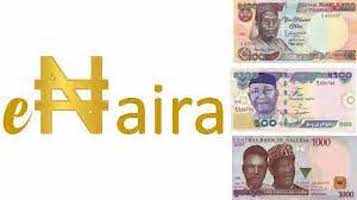
In recent months, Lagos has witnessed a sharp intensification of the crackdown on spraying naira notes at social events, with the Economic and Financial Crimes Commission leading enforcement efforts to uphold currency integrity.In April 2025, popular Lagos socialite Emeka Okonkwo, known as E-Money, was arrested for allegedly spraying both naira and US dollars at public gatherings, an act that violates Nigeria’s currency laws.
In the same month, two social media influencers, Tobilola Olamide (TobiNation) and Peter Olaitan (TDollar), were convicted and sentenced to six months imprisonment or a fine for spraying naira notes at a Lagos event, based on viral TikTok videos that triggered EFCC investigations. These cases underscore the government’s renewed commitment to enforcing the Central Bank Act provisions against currency abuse, amid growing concerns over inflation and economic stability.Beyond Lagos, notable Nigerians have also faced arrest and conviction for spraying naira under the Central Bank Act. Idris Okuneye (Bobrisky) was convicted in April 2024 and sentenced to six months’ imprisonment after his March arrest for spraying at Lagos events.Actress Oluwadarasimi Omoseyin was arrested in February 2023 for spraying and stepping on new naira notes at a wedding in Lagos, receiving a six-month jail term with an option of a fine. A makeup artist, Abdullahi Huseini (Amuscap), was sentenced to six months’ imprisonment in Kano for spraying at his wedding. Cubana Chief Priest was also arrested, etc.We praise the EFCC and the government for doing a great job of protecting the integrity of the naira by ensuring that abusers are punished. We wish and pray that the same swiftness and assurance of convictions be visited on other issues, such as political corruption and insecurity.According to a report by Daily Post 2021, Mr Akin Adewale from a first-generation bank said it was good so that money would not be devalued. What the CBN said was that it spent a lot of money printing it, and the cost is passed on to the economy in the long run. He said, “If the money is rough or torn, its life span is reduced, and printing becomes more frequent, which leads to inflation.”Any person who has been in the country since 2021 will know that the devaluation of the Nigerian currency is closely related to inflation.But what about the cultural significance of spraying money among Nigerian communities?To criminalise spraying money without acknowledging its cultural weight risks violating the social rhythms that bind communities together.In Yoruba culture, spraying money is a revered symbol of honour and respect. It is a way to publicly celebrate and support the success and status of loved ones, affirming social bonds and communal pride. For the Igbo, spraying is an expression of joy and solidarity, a ritual that marks milestones and reinforces communal support. Among the Hausa-Fulani, though less common, similar acts of generosity during celebrations symbolise goodwill and social harmony. The same is also true of many other ethnic groups in the country.Beyond mere festivity, spraying money is a powerful social symbol; it represents abundance, generosity, and the collective sharing of fortune. It is a language of respect, a way to uplift individuals while strengthening community ties. To clamp down on this practice without sensitivity is to risk eroding a cherished cultural expression that nurtures social cohesion.No doubt, many countries have laws prohibiting the mutilation or defacement of currency to protect their integrity. Singapore, Sri Lanka, Australia, the United States, the United Kingdom, and Canada all enforce penalties, ranging from fines to imprisonment, against damaging their money.These regulations reflect a global consensus that currency is both a medium of exchange and a national symbol essential for economic stability. It means Nigeria’s Central Bank Act similarly criminalises currency abuse, including spraying naira notes, to safeguard the naira in line with the value that other nations of the world uphold.By implication, therefore, the culture of enjoying money spraying as a social bonding avenue is an aberration that followed normal political impunity in Nigeria. It’s not really a piece of culture rooted in African cosmology.Political and class dimensions also raise concerns about selective justice and unequal treatment of the elite versus ordinary people. Many countries indeed criminalise the mutilation or defacement of currency to protect its integrity, and Nigeria’s Central Bank Act follows this global practice by outlawing acts like spraying naira notes. However, this raises a deeper question: is criminalising currency abuse more important than implementing policies that genuinely uplift the lives of Nigerians?One must wonder whether the Nigerian government’s crackdown is driven by a sincere commitment to economic reform or simply an attempt to imitate other nations without addressing more pressing issues. It is normal for governments to prioritise certain policies, but if the focus is on enforcing currency laws, then why has there been so little progress in prosecuting terrorists, corrupt officials, or those who steal public funds? Why are governors and government officials rarely held accountable under the law, including the Bank Act?For instance, an online report showed that Thomas Ekpemupolo, known as Tompolo, a former Niger Delta militant leader, was caught in a viral video from his April 54th birthday celebration dancing while N1,000 notes were sprayed and stepped on, actions considered naira abuse under Nigerian law.Following public outcry, the EFCC vowed in May to investigate and hold him accountable, stressing, “Nobody is above the law.” As of late June, there has been no public update on his arrest or arraignment. If the case of the former Niger Delta militant leader could go this way, how about when a governor or senator is seen committing such an offence? Yet the government ought to look into a balanced approach to naira spraying.No one is in support of mutilating the currency, but a balanced approach to the naira spraying crackdown could help preserve cultural heritage while protecting the currency’s integrity. One solution is public education to raise awareness about the legal restrictions and the economic impact of currency mutilation, encouraging celebrants to handle naira notes with care rather than abandoning the tradition altogether.Additionally, regulated practices could be established where spraying is done respectfully and with minimal damage, such as using designated fresh notes or limiting the amount sprayed, distinguishing between cultural honour and currency abuse. This middle ground respects the ritual’s social significance while aligning with legal and economic concerns.Outright bans risk alienating communities and eroding cultural identity, whereas education, innovation, and sensible regulation offer a path to harmonise tradition with the imperative to protect Nigeria’s fragile economy.Most importantly, instead of merely emphasising the sanctity of the naira, Nigeria should strive to uphold the true rule of law, ensuring justice, fighting corruption, and protecting citizens, just as many other countries do. Without this broader commitment, focusing solely on currency integrity risks appearing superficial and disconnected from the urgent needs of the people.Dr Mbamalu, a Jefferson Journalism Fellow, member of the Nigerian Guild of Editors and media consultant, is the publisher of Prime Business AfricaOPINION
Two Sides of Late Major General Muhammadu Buhari

The late Major General Muhammadu Buhari, who famously overthrew the government of Alhaji Shehu Shagari, struck like a thunderbolt. His death, announced yesterday, July 13, 2025, shocked the nation, especially as he appeared healthier than when he was elected President of Nigeria in 2015.
In reflecting on his life and legacy, it is essential to compare the two distinct eras of Buhari’s leadership: first as a military ruler and later as a democratically elected president. As a military president, Buhari was often perceived as a no-nonsense leader who implemented significant reforms that impacted the political, economic, and social landscape of Nigeria. His initiatives included:i. War Against Indiscipline;ii. Import Substitution Industrialization Policy;iii. Go Back to Land Programme; andiv. Foreign Policy InitiativesThe announcement of his coup triggered panic among second Republic politicians, who went into hiding, fearing the unknown. Their concerns were not unfounded; the brutal orders that followed forced many into detention without trial for extended periods. While these policies are attributed to General Buhari, some believe they were largely orchestrated by General Tunde Idiagbon, his Chief of Staff, a bold and incorruptible officer who played a crucial role in implementing Buhari’s agenda.Ambassador Lawal Rafindadi, the Director General of the National Security Organization (NSO), also significantly influenced Buhari’s policies. Under his leadership, the NSO detained numerous Nigerians and a few foreigners without trial, while also investigating high-profile corruption cases, including that of Umaru Dikko.Buhari’s name incited a mix of fear and admiration among Nigerians; while his policies benefitted many, they caused distress for others. There is a prevailing belief that Idiagbon and Rafindadi were the true engines of governance during Buhari’s regime. His subsequent overthrow by General Ibrahim Babangida and the ensuing years of incarceration were reminiscent of the betrayal faced by Julius Caesar.When Buhari returned to power as the elected president in 2015, many Nigerians expressed hope that he would revive the transformative policies of his military rule. However, the reality was starkly different; the economy continued to plummet, corruption surged, and social cohesion deteriorated.This raises the question: Were the key figures who had previously supported Buhari—such as Tunde Idiagbon and Lawal Rafindadi—absent during his second tenure? Observing Nigeria’s political and economic landscape at the time, one might conclude that the nation had made progress in governance compared to Buhari’s first administration. Yet, familiar advisers from his earlier days remained influential, including figures like Malam Maman Daura, the late Mamud Tukur, Alhaji Magaji Danbatta, Professor Ango Abdullahi, and General Aliyu Gusau.Some critics have suggested that Buhari’s second coming could be summed up by the adage “once bitten, twice shy.” Rumor has it he confided to close friends that, in his youth, his aspirations to save Nigeria were thwarted; thus, he was unwilling to dedicate his later years to a country that had not recognized his contributions.Despite this backdrop, Buhari’s integrity remained intact. He personally rejected corruption; however, it appeared he overlooked the corrupt practices of those around him. His presence will be missed as a Nigerian statesman capable of fostering stability in various regions. His immediate family and allies will mourn his passing, as will many Nigerians who knew him well.As we ponder Buhari’s legacy, it remains unclear how history will ultimately judge him. Will he be remembered with fondness or skepticism? Only time will tell, as historians analyze his contributions and their impact on Nigeria.Simon Shango MFR writes from Abuja


